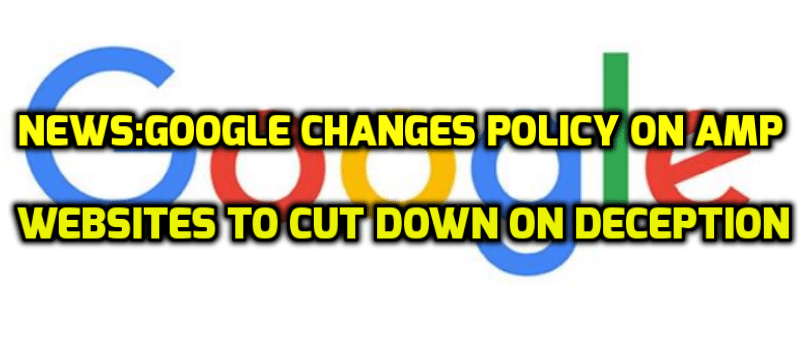We have a news that “Google Changes Policy, AMP Websites, Cut Down Deception”.Last October, Google has announced the introduction of its Accelerated Mobile Pages (AMP) project, a new open-source initiative aiming to “dramatically improve the performance of the mobile web”. It is for any publisher to have pages load quickly on mobile devices. On Feb. 24, 2016, Google officially integrated AMP listings into its mobile search results. Google’s stated goal of a “better, faster mobile internet.”
AMP provides a great user experience across many platforms. Basically, Google’s AMP website load pages in an instant.The use of Google AMP Cache is to serve cached AMP HTML pages.
The Google AMP Cache is a proxy-based content delivery network for delivering all valid AMP documents. It fetches AMP HTML pages, caches them, and improves page performance automatically. It allows users to access content quickly.
For the most part, AMP websites are a stripped down version of the main site. There is pretty much but only the content of the page is display. It also helps to speed up the loading process.
3 core components of AMP pages are:
- HTML: It is HTML with some restrictions for reliable performance.
-
JS: The AMP JS library ensures the fast rendering of AMP HTML pages. -
Cache: The Google AMP Cache can be used to serve cached AMP HTML pages.
Some websites have taken advantage and instead of showing the content they only post a teaser of the content and ask users to visit the main site. To cut down on the abuse, Google has announced that they will be reinforcing their AMP policy where the content will have to remain similar to the main website.
This latest move towards a more mobile-friendly web is Google’s answer to Facebook’s Instant Article sand Apple News. But while both of those initiatives require entering into a dedicated partnership with Facebook or Apple. Anyone can get on board with Google’s AMP and use it to create web pages.
According to Google, “Where we find that an AMP page doesn’t contain the same critical content as its non-AMP equivalent, we will direct our users to the non-AMP page. This does not affect Search ranking. However, these pages will not be considered for Search features that require AMP, such as the Top Stories carousel with AMP.”









Leave a Comment